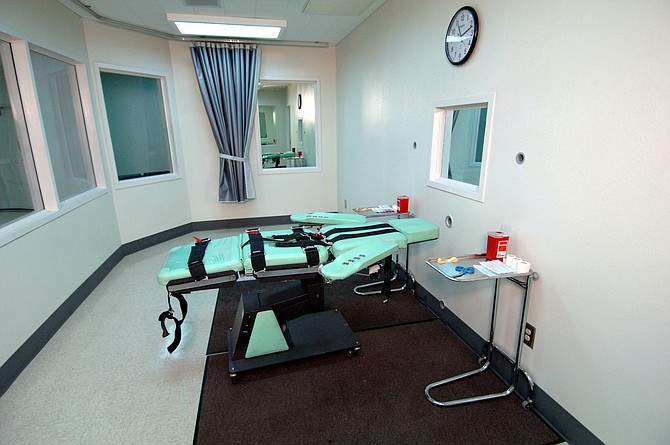In other states, botched executions attempted with untested lethal drugs caused condemned prisoners to die the kind of slow, painful deaths that state-administered execution is designed to conceal. Photo courtesy Flickr/California Department of Corrections and Rehabilitation
On Friday, watchdogs of the state's execution procedures got a victory from a local judge who ordered the Mississippi Department of Corrections to produce unredacted documents about lethal injection drugs that are or have been in the state's possession.
In her order, Hinds County Chancery Judge Denise Owens also awarded attorneys' fees for "wrongful denial of access to records."
"These are the people's records, which cannot be kept secret," Jim Craig of the Roderick and Solange MacArthur Justice Center in New Orleans said. The center brought the suit to compel MDOC to disclose the source of the chemicals it uses to execute prisoners and release the names of prison staff that assist with the executions.
Craig added: "Despite unsworn statements to the contrary, MDOC had no proof at all that the companies who sell lethal injection drugs to the Department have ever been subject to harassment or intimidation. More than ever, after the visible torture of several condemned prisoners in other states last year in botched executions, the origin, integrity and composition of lethal injection drugs is a matter of serious public concern."
Through court documents, MDOC said that releasing the information would jeopardize the safety of the prisons and their staffs and violate the privacy rights of the drug supplier.
Owens wrote in her opinion that MDOC only wants to protect execution-related information because of the controversy surrounding the process. In recent weeks, Georgia had planned to execute 47-year-old Kelly Renee Gissendaner, making her the first woman in modern history that the Peach State would put to death.
However, Georgia state prison officials delayed the execution in the final hours, explaining: "Within the hours leading up to the scheduled execution, the Execution Team performed the necessary checks. At that time, the drugs appeared cloudy. The Department of Corrections immediately consulted with a pharmacist, and in an abundance of caution, Inmate Gissendaner's execution has been postponed." Gissendaner's execution had already been moved once before.
In other states, botched executions attempted with untested lethal drugs caused condemned prisoners to die the kind of slow, painful deaths that state-administered execution is designed to conceal.
Owens argued that MDOC's primary motivation in keeping the records hidden is unsubstantiated fear of what might happen.
"The issue in this case is whether the information is sensitive enough to be sealed and withheld from the public...The court finds it is not," Owens wrote.



Comments
Use the comment form below to begin a discussion about this content.
comments powered by Disqus